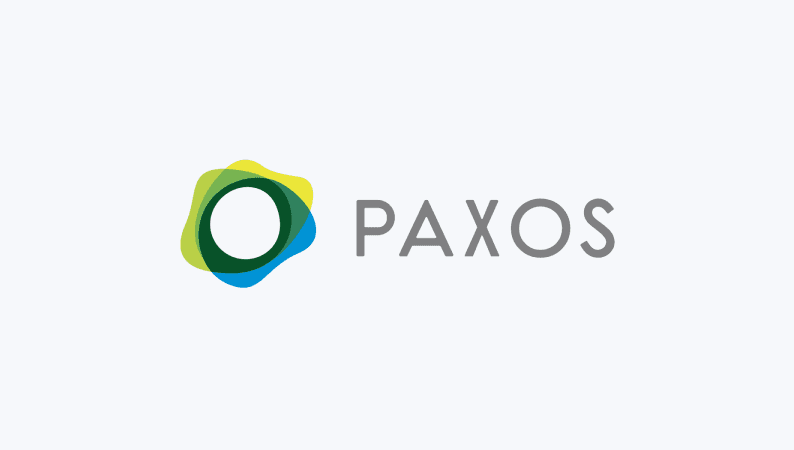Spotlight on Brazil 2023: Embracing Digital Asset Regulation
Arnoldo J. Reyes
Jun 20, 2023
Since 2000, Brazil's standing as a global economic power has risen steadily, with its GDP growing from $655B in 2000 to estimates north of $2T for 2023.
Early annual projections had Brazil's GDP growing by 2.8% in 2022, 1.2% in 2023 and 1.4% in 2024. However, Latin America's largest economy grew 4% in the first quarter of 2023 from a year earlier, exceeding a projected 3% quarterly expansion. This prompted some experts to adjust for a more favorable 2023 GDP growth forecast despite high-interest rates and slowly declining inflation.
Like any nation with a large, growing economy, Brazil is trying to balance innovation and risk, specifically when establishing effective consumer protections while ensuring public finance sustainability. The desire to innovate while also providing security for consumer’s assets has led prominent Brazilian business leaders, policymakers and consumers to view digital assets as a feasible solution to combat the financial inefficiencies and lack of transparency that could drag the economy into less-than-sustained growth in years to come.
What crypto regulation looks like in Brazil 2023
In a previous post, we discussed how potential regulation could stimulate public acceptance of crypto and encourage domestic and foreign investment in Brazil's markets. Now that regulation is a reality: In December, Brazil's federal government enacted a law that defines virtual assets and sets guidelines for their governance, operational transparency, security of personal data and compliance with international anti-money laundering (AML) and counter-terrorist financing standards.
The law defines virtual assets as the "digital representation of an asset that can be traded or transferred by electronic means and for making payments or for the purpose of investment." It requires virtual asset service providers (VASPs) in Brazil to get federal authorization by June 30, 2023.
Symbolic of the nation's broad support for digital assets, a new presidential administration took office in Brazil since the law's passing with no change in momentum. Moreover, the new administration has supported even more measures, requiring crypto exchanges and brokers to segregate their assets.
A Virtual Asset Service Provider (VASP) is defined by the Financial Action Task Force (FATF) as a business that conducts one or more of the following actions on behalf of its clients:
Exchange between virtual assets and fiat currencies
Exchange between one or more forms of virtual assets
Transfer of virtual assets
Safekeeping and/or administration or virtual assets or instruments enabling control over virtual assets
Participating in and provision of financial services related to an issuer’s offer and/or sale of a virtual asset
Additionally, the definition of VASPs is not meant to apply to those entities or persons who solely develop underlying code, unless they otherwise provide financial services covered by the VASP definition.1
1 “Virtual assets and related providers” KPMG, 2021, Amy S. Matsuo
The Brazilian financial sector has taken additional steps to embrace crypto. In March, Nubank released Nucoin, a new token available to 70 million Nubank customers in Brazil, Colombia and Mexico. In February, the Bank of Brazil — the country's oldest bank — announced that its customers can now pay their taxes with cryptocurrency deposited into Bitfy.
Meanwhile, Brazil's CDBC pilot will take a significant step forward this month when the Banco Central do Brasil announced 14 organizations that will begin testing pilot technology for the digital real, which is scheduled to go live in 2024.
Brazil's appetite for crypto is far reaching
Brazil is one of the world's fastest-growing digital currency markets. As of October 2022, an estimated 16 million people in Brazil own cryptocurrency — and more than 12,000 companies hold cryptocurrency on their balance sheets.
According to a November survey that found 33% of Brazilian investors planned to purchase cryptocurrencies within the next 12 months, it is also the investment of choice among Brazilians. That puts crypto at the top of the pack, ahead of real estate at 26%, stocks at 22%, credit cards at 21% and savings accounts at 15%.
At the consumer level, 19% of Brazilians recently reported receiving crypto as rewards/cashback from card operations. Further, 20% of Brazilian cryptocurrency buyers said they'd bought an NFT.
What’s driving the use of digital assets in Brazil?
Here are some key aspects of Brazil's embrace of digital assets:
1. Cryptocurrency exchanges: Brazil has a vibrant cryptocurrency exchange market, with several platforms operating in the country. These exchanges allow users to buy, sell, and trade digital assets, including Bitcoin, Ethereum, USDP, PAXG and other cryptocurrencies. The growth of cryptocurrency exchanges indicates increasing interest and participation in the crypto market by both individuals and businesses in Brazil.
2. Cryptocurrency payments: Brazil has witnessed the acceptance of cryptocurrencies as a means of payment by certain businesses. Some merchants and service providers, particularly in the tech industry and e-commerce sectors, have started to accept cryptocurrencies as an alternative form of payment. This allows consumers to use digital assets for purchasing goods and services.
3. Peer-to-peer transactions: Peer-to-peer (P2P) cryptocurrency trading has gained popularity in Brazil. P2P platforms connect buyers and sellers directly, allowing them to trade digital assets without the involvement of a centralized exchange. This decentralized form of trading enables individuals to transact with each other using various cryptocurrencies.
4. Blockchain initiatives: The Brazilian government has also shown interest in blockchain technology, the underlying technology behind cryptocurrencies. Blockchain can enhance transparency, efficiency and security in various sectors, including finance, supply chain and governance. Brazil has explored blockchain applications in land registration, voting systems and public services.
It is important to note that embracing digital assets in Brazil, as in any country, is an evolving and dynamic process. The extent of Brazil's sustained interest in digital assets and any subsequent developments hinge on the success of its ability to regulate — and stimulate — digital asset adoption.

Want to learn more about how digital asset regulation can drive adoption?

